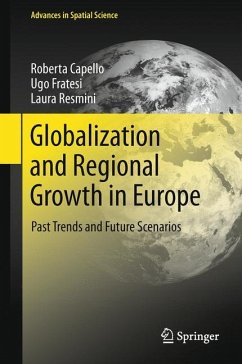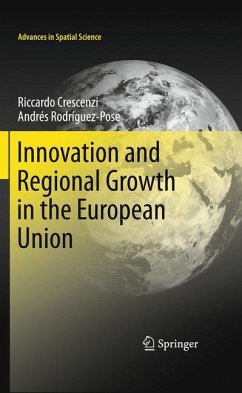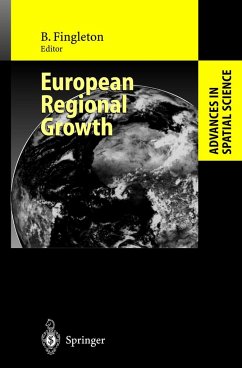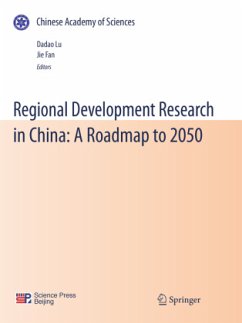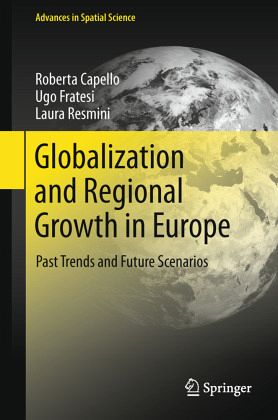
Globalization and Regional Growth in Europe
Past Trends and Future Scenarios
Versandkostenfrei!
Versandfertig in 6-10 Tagen
77,99 €
inkl. MwSt.
Weitere Ausgaben:

PAYBACK Punkte
39 °P sammeln!
After a description of the new forms of globalization currently shaping our world, and of their possible spatial effects, the book highlights which European regions have in the past succeeded in taking advantage of globalization trends and identifies the major reasons for their success. The book also offers a prospective analysis utilizing scenarios based on different assumptions of how globalization trends will develop, identifying the regional winners and losers for each scenario. The analysis greatly benefits from a unique database which contains, among others, data on FDI by sector and pro...
After a description of the new forms of globalization currently shaping our world, and of their possible spatial effects, the book highlights which European regions have in the past succeeded in taking advantage of globalization trends and identifies the major reasons for their success. The book also offers a prospective analysis utilizing scenarios based on different assumptions of how globalization trends will develop, identifying the regional winners and losers for each scenario. The analysis greatly benefits from a unique database which contains, among others, data on FDI by sector and professions at the regional Nuts-2 level for all 27 EU countries. A time-span of more than 10 years is covered, and scenarios are developed for the future development up to 2020.



